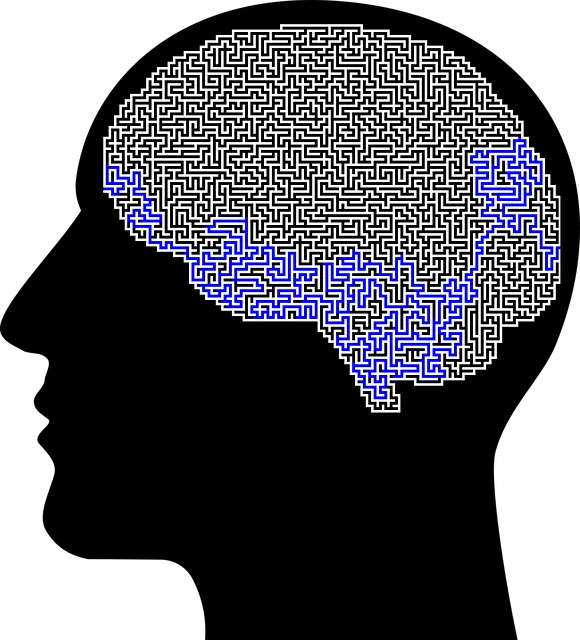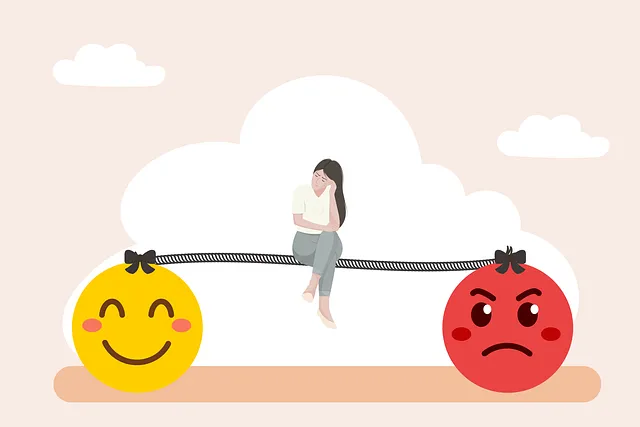Louisville Kaiser Permanente mental health providers stress the importance of teaching tailored, culturally sensitive coping skills for managing emotions and enhancing well-being. They advocate for integrating activities like mindfulness, exercise, and self-care into daily routines to build resilience against stressors, promote emotional balance, and foster stronger mental fortitude through their evidence-based practices.
Coping skills development is an essential aspect of maintaining mental health and well-being. In today’s fast-paced world, effective coping strategies can help individuals navigate stress, anxiety, and challenging life situations. This article explores various dimensions of coping skill enhancement, focusing on the critical role played by Louisville Kaiser Permanente mental health providers in teaching proven coping techniques. We provide a comprehensive guide to identifying personal coping mechanisms, practical tips from experts, and strategies for integrating these skills into daily routines for long-lasting mental resilience.
- Understanding Coping Skills and Their Significance in Mental Health
- The Role of Louisville Kaiser Permanente Mental Health Providers in Teaching Coping Strategies
- Identifying Personal Coping Mechanisms: A Step-by-Step Guide
- Developing Effective Coping Skills: Practical Tips from Experts
- Integrating Coping Techniques into Daily Life for Long-Lasting Well-being
Understanding Coping Skills and Their Significance in Mental Health

Coping skills are adaptive behaviors and mental strategies that individuals use to navigate and overcome life’s challenges and stressful situations. They play a pivotal role in maintaining good mental health, as effective coping mechanisms help people manage their emotions, reduce anxiety, and enhance overall well-being. Louisville Kaiser Permanente mental health providers emphasize the importance of teaching and encouraging healthy coping skills among their clients. This is particularly crucial given that each individual has unique experiences and backgrounds, including cultural factors that influence their emotional healing processes.
Cultural sensitivity in mental healthcare practice is a critical aspect of coping skills development, ensuring that treatments are tailored to meet the diverse needs of patients. Mental health professionals must consider the impact of cultural beliefs and traditions on an individual’s perception of stress and their ability to cope. Moreover, integrating these insights into risk management planning for mental health professionals can create safer, more effective treatment environments. Effective coping skills not only empower individuals to handle current challenges but also build resilience for future stressors, fostering a stronger sense of mental fortitude.
The Role of Louisville Kaiser Permanente Mental Health Providers in Teaching Coping Strategies

Louisville Kaiser Permanente mental health providers play a pivotal role in empowering individuals to navigate life’s challenges effectively. They are equipped with specialized knowledge and skills to teach coping strategies that go beyond traditional therapy. These providers often incorporate evidence-based practices tailored to each client’s unique needs, focusing on both short-term relief and long-term mental wellness coaching programs development.
Through interactive sessions, they facilitate the cultivation of emotional intelligence, a cornerstone for robust mood management. By teaching individuals how to recognize and regulate their emotions, Louisville Kaiser Permanente professionals enable them to make sense of their feelings and respond adaptively. This proactive approach not only enhances coping abilities but also fosters resilience in the face of stress, anxiety, or depression, ultimately contributing to a more balanced and fulfilling life.
Identifying Personal Coping Mechanisms: A Step-by-Step Guide

Identifying Personal Coping Mechanisms is a crucial step towards enhancing resilience and overall well-being. This process involves introspection and understanding one’s unique response to stress or challenging situations. At Louisville Kaiser Permanente, mental health providers emphasize the importance of this self-discovery journey.
Here’s a simple guide: Start by reflecting on past experiences; notice the strategies you naturally employed. Were there certain activities, thoughts, or behaviors that helped you feel better? For instance, some people find solace in physical activity, while others prefer creative outlets like writing or painting. Next, assess the effectiveness of these coping mechanisms; did they provide lasting relief or only temporary distraction? Engage in conversations with trusted friends or family members who know your history well to gain their perspective on your coping styles. This step can offer valuable insights into your personal resources for building resilience, especially when considering the Cultural Sensitivity in Mental Healthcare Practice, as recognizing and respecting individual differences is key. Additionally, Louisville Kaiser Permanente’s mental health education programs design often incorporates these self-awareness exercises to empower individuals in managing their mental health effectively.
Developing Effective Coping Skills: Practical Tips from Experts

Developing effective coping skills is a vital aspect of maintaining and enhancing mental health. According to Louisville Kaiser Permanente mental health providers, cultivating robust coping mechanisms can significantly improve one’s overall well-being. They emphasize that engaging in regular self-care practices forms the backbone of this process.
Experts suggest incorporating activities that foster emotional intelligence into daily routines. This may include mindfulness exercises, such as meditation or deep breathing techniques, which help individuals manage stress and regulate their emotions. Additionally, maintaining a consistent self-care routine, like exercise, adequate sleep, and nutritious meals, plays a pivotal role in coping skills development. These practices enable individuals to better navigate challenging situations, promoting resilience and emotional balance.
Integrating Coping Techniques into Daily Life for Long-Lasting Well-being

Integrating coping techniques into daily life is key to fostering long-lasting well-being. The Louisville Kaiser Permanente mental health providers emphasize that consistency is crucial for managing stress and adversity. By incorporating practices such as mindfulness, deep breathing exercises, and regular physical activity, individuals can create a resilient routine. These coping mechanisms not only serve as immediate stress relievers but also contribute to the development of emotional resilience over time.
Additionally, building empathy and improving self-esteem are integral parts of the emotional healing processes. Engaging in activities that enhance self-awareness and cultivate understanding towards oneself and others can significantly impact overall mental health. Louisville Kaiser Permanente’s comprehensive approach encourages individuals to embrace these strategies as integral components of their daily lives, leading to improved coping abilities and a higher quality of life.
Coping skills development is a powerful tool for maintaining mental health, and Louisville Kaiser Permanente mental health providers play a vital role in teaching effective strategies. By understanding personal coping mechanisms and integrating these techniques into daily life, individuals can enhance their resilience and overall well-being. The step-by-step guide provided offers practical tips from experts, empowering folks to navigate life’s challenges with greater ease.






